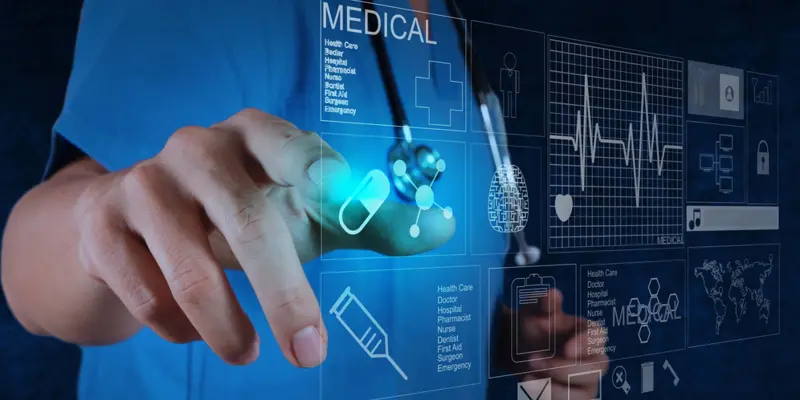The medical billing sector is undergoing tremendous change as a result of developing trends and technological improvements. The newest advancements in medical billing, like automation, artificial intelligence, and cloud-based solutions. These innovations are meant to improve patient satisfaction, efficiency, and accuracy. We will also examine the difficulties the industry faces in adjusting to these developments and navigating a constantly changing environment. Come along as we explore the fascinating future of medical billing services and how it will affect the healthcare sector.
Automation in HealthCare billing process:
The medical billing process can be made more efficient and error-free by automating certain of its processes. Real-time tracking of claims, coding mistake correction, and patient information validation are all possible with automated systems, which can result in quicker claim denials and payments.
Machine learning (ML) and artificial intelligence (AI) are employed:
Medical billing is progressively integrating AI and ML technology to streamline workflows, identify mistakes, and anticipate possible problems. In order to streamline procedures, identify mistakes, and foresee future problems, medical billing is increasingly integrating AI and ML technology. By assessing massive quantities of data, these technologies can spot emerging trends and patterns that increase the productivity of the billing process as a whole and the reliability of billing codes.
Cloud-based Solutions for Medical Billing:
Medical billing data may manage on safe, scalable, and easily accessible platforms thanks to cloud-based medical billing systems. Real-time updates, smooth data sharing, and remote access are made possible by these systems, which facilitate communication and claim tracking between medical practitioners and billing specialists.
Outsource Medical Billing Services:
A growing number of healthcare professionals are choosing to outsource their medical billing in order to focus on their primary skills, cut expenses, and increase efficiency. Providers can reduce the risks involved with in-house billing operations and guarantee accurate and speedy claims processing by collaborating with professional medical billing businesses.
Patient-focused medical billing process:
Patient-centric medical billing is adjusting procedures to guarantee openness and improve patient experience. This strategy entails giving patients easy-to-use digital tools to access their billing information, provide flexible payment options, and clearly outlining rates. In order to foster loyalty and trust, healthcare providers will need to embrace patient-centric billing procedures as they realize how important patient happiness is. These new developments in medical billing demonstrate how the sector is moving toward procedures that are more precise, patient-focused, and efficient. Healthcare providers can improve patient happiness and financial stability by optimizing their billing operations through the adoption of these new technologies.
Impact of Medical Billing Technologies:
The future of medical billing being shape by a number of technologies that improve patient experience, accuracy, and efficiency. Among these technologies are the following:
Enhanced Automation: Optimizing the billing process:
The days of medical billing being dominated by manual data input and heaps of paper are long gone. Through automation, technology has brought forth a new era of efficiency. These days, medical billing software completes activities like tracking payments, submitting claims, and verifying the integrity of codes remarkably quickly and precisely. By doing this, mistakes reduced and a great deal of time and energy saved on administrative duties, freeing up healthcare professionals to concentrate on what really counts, providing excellent patient care.
Smooth Integration between Billing Software and EHRs:
Electronic Health Records (EHRs), which centralize patient data and enhance professional communication, have emerged as a key component of contemporary healthcare. The way that medical billing software and EHRs work together is evidence of how well technology works in healthcare administration. Smooth patient data flow from diagnosis to billing reduces errors, improves accuracy, and facilitates a more efficient billing procedure.
Medical Billing with Blockchain Technology:
Blockchain technology increases data security, interoperability, and transparency, which can enhance medical billing. Blockchain can help lower billing fraud, expedite claims processing, and facilitate safe data sharing. Between insurance companies, billing staff, and healthcare providers by leveraging a decentralized, tamper-proof digital ledger.
The Impact of Telemedicine on Medical Billing:
Due to its ability to facilitate remote consultations, monitoring, and treatments, telemedicine has revolutionized the delivery of healthcare. Medical billing needs to change to reflect remote patient monitoring, virtual visits, and other telehealth services as telemedicine grows.
The Use of Wearable Technology in Medical Billing:
There is a growing trend in the use of wearable technology for preventative healthcare and remote patient monitoring. Such as smartwatches and fitness trackers. These gadgets have the capacity to produce insightful patient health data that can guide treatment decisions, diagnoses, and invoices. New billing codes and reimbursement methods for data-driven. Individualized treatment will require as wearable technology becomes more integrated into healthcare delivery.
Also Read:
- How Can Technology Enhance Medical Billing Efficiency?
- Evolving Role of Medical Technology in Healthcare: Implications for Physicians
Conclusion:
With enhanced data management, security, and interoperability. These technologies are reshaping medical billing and will eventually result in a more effective and patient-focused billing procedure. The implementation of these technologies expected to be of paramount importance in mitigating the obstacles encountered by the medical billing sector and guaranteeing its sustained advancement.









